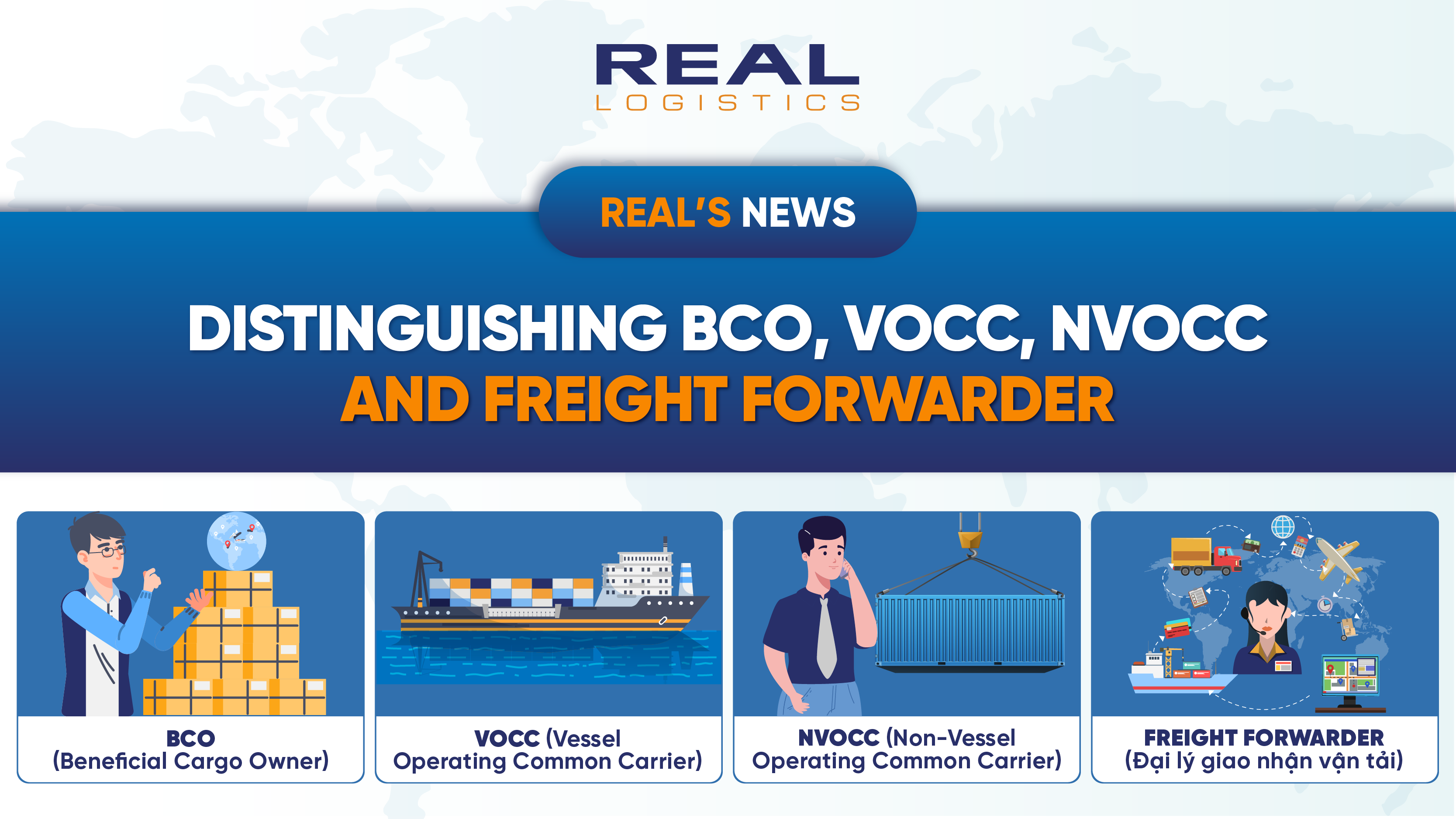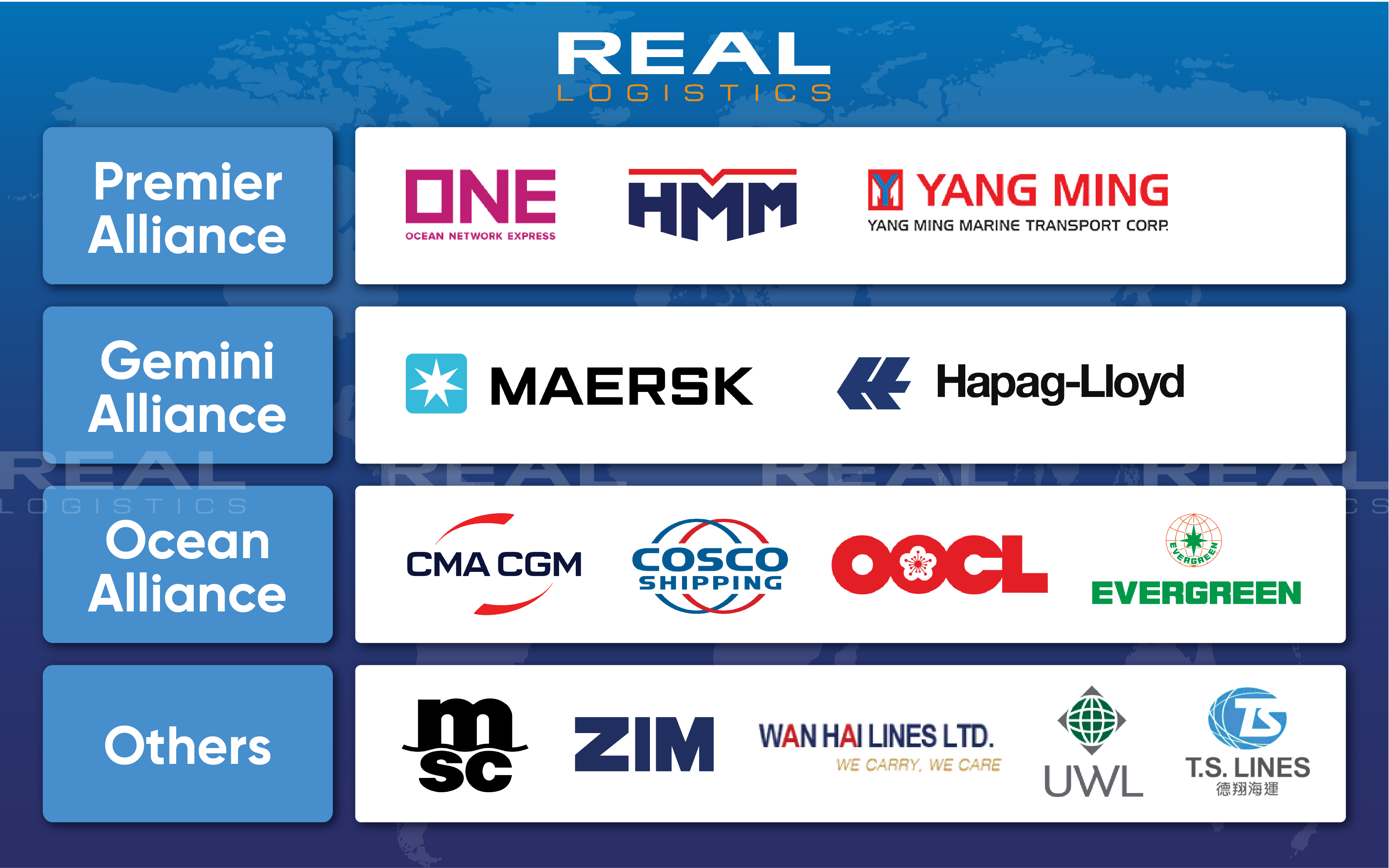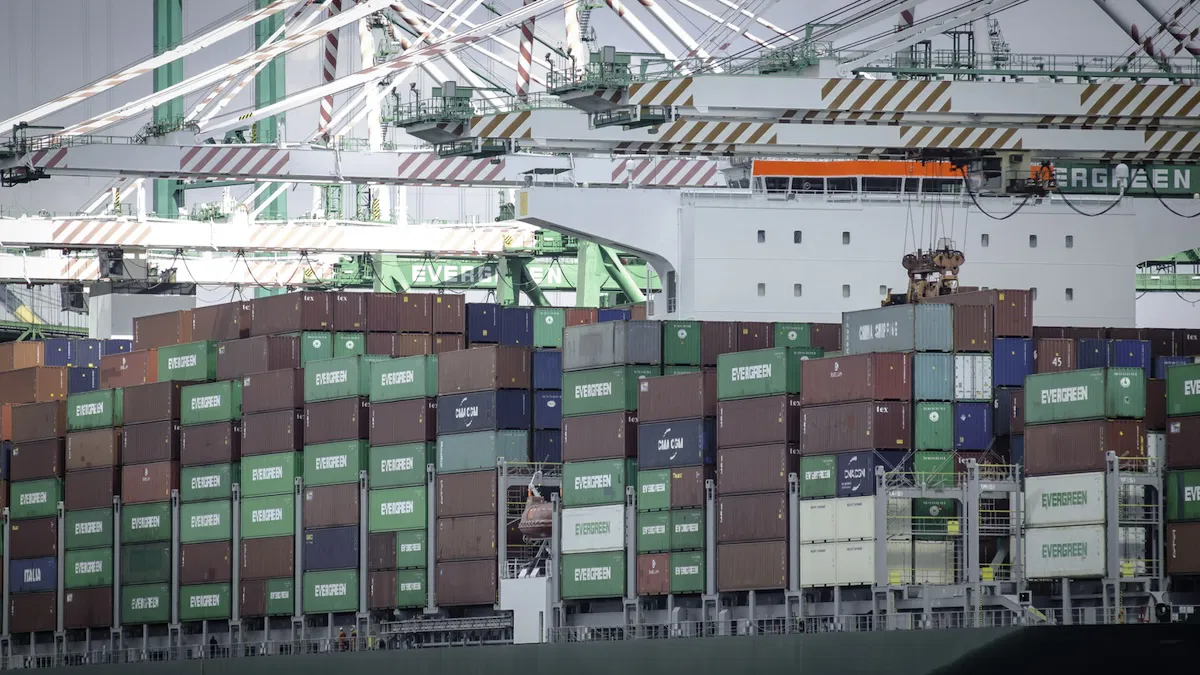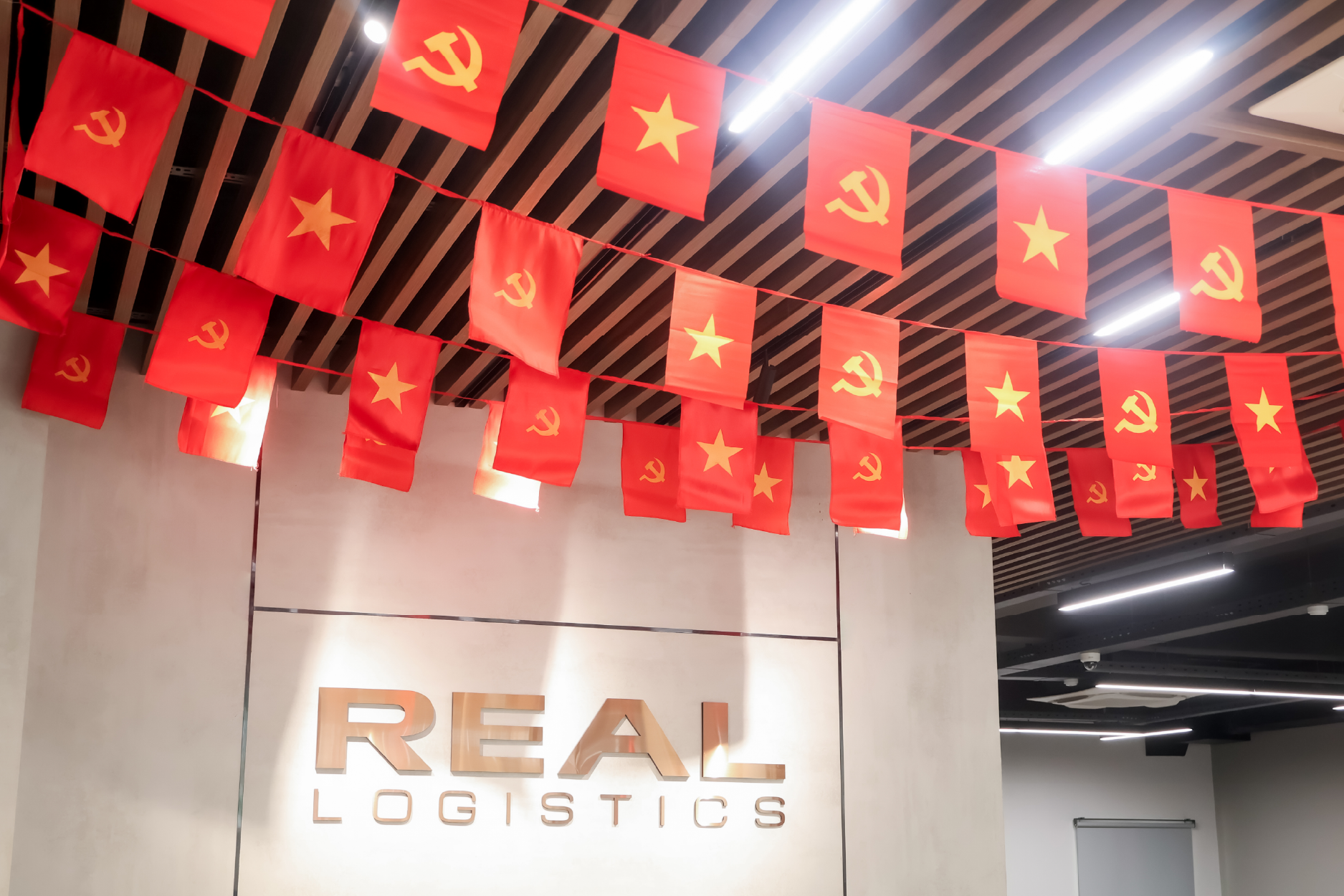Distinguishing BCO, VOCC, NVOCC and Freight Forwarder: Key Roles in Global Supply Chain

In the vast and complex world of international logistics, transporting goods from point A to point B involves more than just moving cargo from a warehouse to a port and onto a vessel. Behind every shipment lies the intricate coordination of various entities, each playing a distinct yet indispensable role. Understanding the differences between BCO (Beneficial Cargo Owner), VOCC (Vessel Operating Common Carrier), NVOCC (Non-Vessel Operating Common Carrier), and Freight Forwarder is key for businesses to optimize their supply chains, reduce costs, and manage risks effectively.
This article will delve into the roles, characteristics, and interdependent relationships of each entity.
1. BCO – Beneficial Cargo Owner
Definition: BCO stands for "Beneficial Cargo Owner." These are organizations or individuals who own the goods being shipped and are the ultimate beneficiaries of the transportation process. BCOs are the party with a need to move their cargo, either directly or indirectly, from the point of production to the point of consumption or distribution.
Role and Characteristics:
- Owner of the Cargo: BCOs hold legal ownership of the goods being transported.
- Primary Payer of Freight: While they may use intermediaries for administrative procedures, BCOs are ultimately responsible for the shipping costs.
- Large Cargo Volumes: BCOs are typically large enterprises with sufficient import/export volumes to negotiate and contract directly with ocean carriers (VOCCs) to secure more favorable rates.
- Specific Requirements: They often have very specific demands regarding routes, transit times, equipment types, and auxiliary services.
Relationship: BCOs can work directly with VOCCs, or through NVOCCs/Freight Forwarders if they prefer more convenience, flexibility, or do not have sufficient volume for direct carrier negotiations.
Examples: Samsung, Nike, Walmart, Apple... are prime examples of BCOs, as they produce/import their own goods and have internal logistics teams to manage their global supply chains.
.webp)
2. VOCC – Vessel Operating Common Carrier
Definition: VOCC stands for "Vessel Operating Common Carrier." These are companies that own, operate, and manage fleets of vessels (container ships, bulk carriers, oil tankers, etc.). They are directly responsible for transporting cargo along fixed maritime routes and issue the Master Bill of Lading (MBL) to their direct customers.
Role and Characteristics:
- Asset Ownership and Operation: VOCCs possess vast fleets of vessels, their own terminals, containers, and infrastructure necessary for shipping operations.
- Provides Mainline Shipping Services: They operate scheduled shipping routes (liner services) between major ports worldwide.
- Issues Master Bill of Lading (MBL): This is the transport document issued by the carrier (VOCC) to the shipper (which can be a BCO, NVOCC, or a Freight Forwarder acting as NVOCC), confirming receipt of goods and commitment to transport them to the destination port. The MBL represents the direct contract of carriage between the VOCC and its direct shipper.
- Responsible for Vessel and Voyage: All risks associated with the vessel's operation and the voyage schedule fall under the VOCC's responsibility.
Relationship: VOCCs form the backbone of ocean transport. They sell vessel space directly to BCOs or in bulk to NVOCCs and Freight Forwarders (often under long-term contracts to ensure cargo volume).
Examples: Maersk, MSC, COSCO Shipping, CMA CGM, Hapag-Lloyd, ONE (Ocean Network Express), Evergreen Line…

3. NVOCC – Non-Vessel Operating Common Carrier
Definition: NVOCC stands for "Non-Vessel Operating Common Carrier." As the name suggests, an NVOCC is a common carrier that does not own or operate vessels. However, they act as a carrier to their customers by issuing their own House Bill of Lading (HBL) and assume legal responsibility for the cargo to the actual shipper.
Role and Characteristics:
- Purchases Bulk Shipping Space: NVOCCs buy large blocks of shipping space (slots) from VOCCs at wholesale rates (often through long-term contracts), and then resell this space to smaller shippers at retail rates.
- Issues House Bill of Lading (HBL): This is a key distinguishing feature. The NVOCC issues an HBL to their customer (the actual shipper) to confirm receipt of goods and commitment to transport. Concurrently, the NVOCC receives a Master Bill of Lading (MBL) from the VOCC for the consolidated cargo. The HBL is the contract of carriage between the NVOCC and the BCO/Freight Forwarder, while the MBL is the contract between the VOCC and the NVOCC.
- Consolidation Services: NVOCCs specialize in consolidating Less than Container Load (LCL) shipments from multiple small shippers into Full Container Load (FCL) shipments. This optimizes space utilization and reduces shipping costs for smaller shippers who don't have enough cargo to fill an entire container.
- Flexibility and Competitive Pricing: Due to their bulk purchasing power, NVOCCs can often offer more competitive rates to smaller shippers or provide more flexible services compared to dealing directly with a VOCC.
- Container Ownership (Optional): Some large NVOCCs may own or long-term lease their own containers to support their operations, but this is not a mandatory or universal characteristic for all NVOCCs. Many primarily lease containers as needed.
- Global Network: Large NVOCCs typically possess an extensive network of agents and offices worldwide to manage international supply chains.
Relationship: NVOCCs serve as a crucial intermediary, bridging the gap between VOCCs and BCOs/Freight Forwarders who require LCL services or greater flexibility.
Examples: ECU Worldwide, Vanguard Logistics Services, Blue Water Shipping, CaroTrans. Many large freight forwarders such as Expeditors International, DHL Global Forwarding, DSV... also operate as NVOCCs.

4. Freight Forwarder
Definition: A Freight Forwarder acts as an intermediary, orchestrating the entire transportation process from the sender to the receiver. They do not own transport assets (vessels, aircraft) but possess the expertise and network to organize, arrange, and manage the entire logistics chain.
Role and Characteristics:
- End-to-End Supply Chain Orchestration: A Freight Forwarder is a "logistics architect" for the shipper. They do not merely book space on a vessel/aircraft but provide a comprehensive range of ancillary services, including:
- Consulting on optimal routes and modes of transport.
- Booking cargo space with VOCCs or NVOCCs.
- Customs clearance.
- Inland haulage to/from ports/airports.
- Warehousing and distribution.
- Cargo insurance.
- Packing, re-labeling of goods.
- Documentation management.
- Represents the Shipper: They act in the best interest of the shipper, seeking the most efficient and cost-effective shipping solutions.
- Bill of Lading Issuance: A Freight Forwarder can issue their own House Bill of Lading (HBL) when they operate as an NVOCC for that particular shipment (i.e., they consolidate cargo or purchase space in their own name and assume legal responsibility to the shipper). Alternatively, they may simply act as an agent for a VOCC or NVOCC, in which case they would not issue a Bill of Lading but rather handle the associated documentation.
- Expertise in Regulations and Procedures: Their deep understanding of customs regulations, international trade laws, and documentation helps shippers avoid errors and delays.
Relationship: The Freight Forwarder serves as the single point of contact for the shipper, connecting them to VOCCs, NVOCCs, inland carriers, customs authorities, and other relevant parties.
Examples: Real Logistics, DHL Global Forwarding, DSV (formerly Panalpina), Kuehne + Nagel, Expeditors International, Nippon Express…

5. The Interconnected Ecosystem: Complex Relationships, Mutual Benefits
BCOs, VOCCs, NVOCCs, and Freight Forwarders do not operate in isolation but form a complex and interdependent network.
- The BCO initiates the chain with a shipping need.
- The VOCC is the core service provider, owning the assets.
- The NVOCC purchases space from VOCCs, consolidates cargo, and resells it, offering flexibility and competitive pricing for LCL shipments.
- The Freight Forwarder orchestrates the entire process, providing comprehensive services and expertise to simplify the supply chain for the BCO.
The existence of these distinct roles offers significant benefits:
- Cost Optimization: Shippers can choose the partner best suited to their cargo volume and budget.
- High Flexibility: Ability to customize shipping solutions for specific needs.
- Risk Mitigation: The expertise of each party helps navigate legal, regulatory, and operational challenges.
- Increased Efficiency: Streamlines processes for shippers, allowing them to focus on their core business.
In an increasingly volatile and complex global supply chain landscape, choosing the right logistics partner is paramount for a business's success. A thorough understanding of each party's role will empower you to make informed decisions and optimize your import/export operations.
—————————————
Real Logistics Co.,Ltd
👉 Facebook: Real Logistics Co.,Ltd
☎️ Hotline: 028.3636.3888 | 0936.386.352
📩 Email: info@reallogistics.vn | han@reallogistics.vn
🏡 Address: 39 - 41 B4, An Loi Dong, Thu Duc, HCM City
51 Quan Nhan, Nhan Chinh, Thanh Xuan, Ha Noi City

